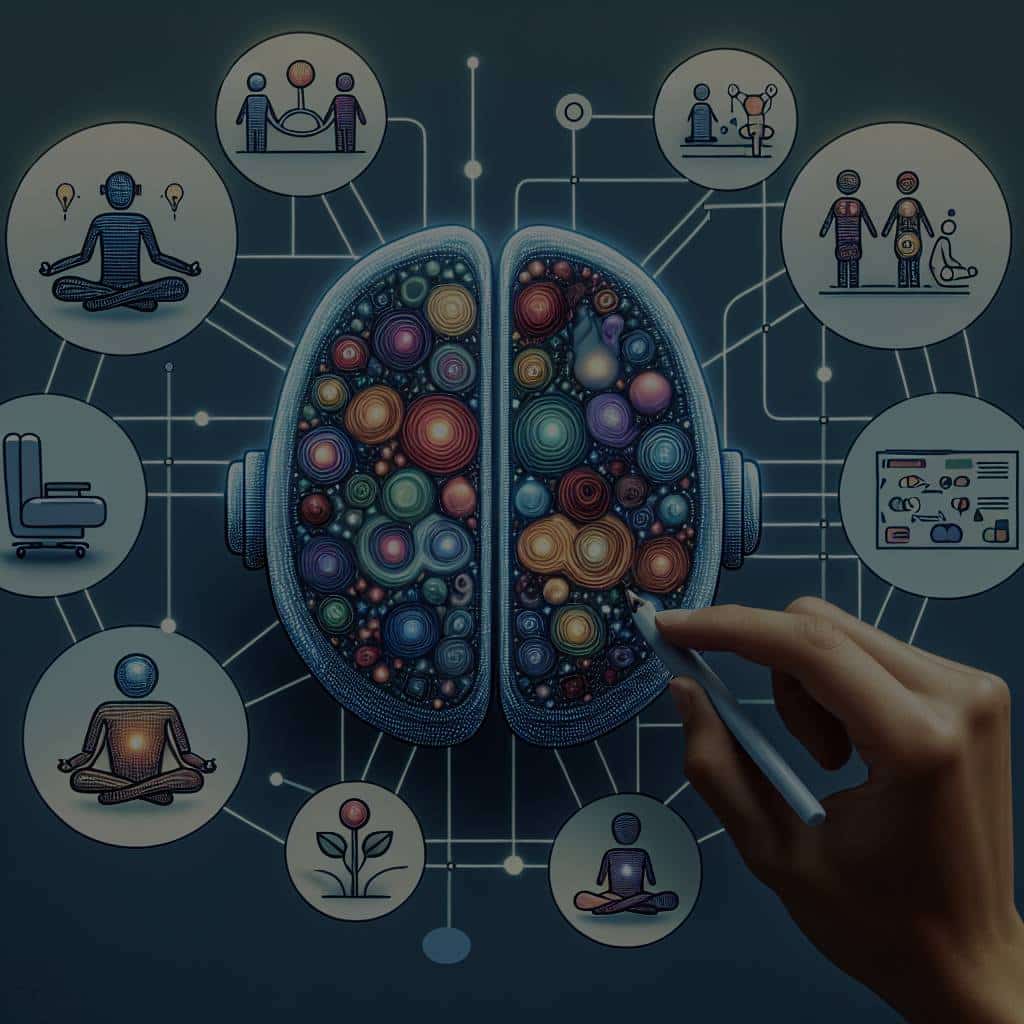Artificial Intelligence (AI) has permeated almost every corner of our lives. Machine learning, a significant subset of AI, is now an integral part of healthcare. The implications of these technological advancements in personalizing mental health interventions are vast and intriguing. They present a promising future for mental health care, a field that has always been complex and individualized. So, let’s dive into this fascinating subject and explore how AI can help us personalize mental healthcare.
The Relationship between Artificial Intelligence and Mental Health Data
Artificial Intelligence has undoubtedly shaken up many industries, and healthcare is no exception. In the realm of mental health, AI’s potential to revolutionize treatment and care is staggering. A large portion of mental health treatment today relies heavily on data. From a patient’s initial diagnosis to the course of their treatment, data is a key player.
In the same genre : How Does the Integration of Hydroponic Systems in Urban Living Spaces Impact Air Quality?
AI has the capability to learn from this data and make predictive analyses. With machine learning, algorithms are trained to parse through a multitude of data sources, such as patient health records, clinical studies from CrossRef, PubMed and Google Scholar, and more. These machines can identify patterns and trends that humans might miss, giving them the potential to make more accurate diagnoses and suggest more effective treatment options. Moreover, they can do it at a much faster pace than humans.
Personalizing Therapy with AI: A New Era in Mental Health Care
Personalization is at the core of mental health care. There is no one-size-fits-all when it comes to mental health. Everyone’s experiences, triggers, and coping mechanisms are unique. Recognizing this, therapists and counselors have always strived to tailor their interventions to each individual’s needs.
Also read : What Are the Best Mindfulness Practices for Reducing Symptoms of PTSD in Veterans?
AI can play a major role in personalizing therapy. Machine learning algorithms can analyze a patient’s data and predict what type of therapy might work best, based on previous patients with similar data profiles. For instance, if a patient’s data indicates they suffer from depression, AI can compare this with data from other depression patients. By analyzing what therapy methods worked best for those patients, AI can suggest tailored interventions for the new patient.
The Role of Artificial Intelligence in Mental Health Interventions
AI’s role in mental health interventions is not limited to just personalizing therapy. It can also assist in the detection of mental health issues. For instance, algorithms can analyze a patient’s social media posts or text messages for signs of depression or anxiety. They can even detect subtleties in a patient’s speech or writing that might indicate a mental health issue.
Furthermore, AI can help bridge the gap in mental health care accessibility. Many people don’t have access to mental health services due to geographical location, cost, or stigma. AI-powered mental health apps can provide these individuals with access to therapeutic interventions.
AI in Mental Health – The Concerns and Challenges
While the potential of AI in mental health care is exciting, we must also consider the concerns and challenges. Data privacy is a significant concern. Patients’ mental health data is deeply personal, and safeguarding it is of utmost importance. AI systems must be designed to protect this data and prevent breaches.
Another challenge is the lack of human touch in AI-powered therapy. Mental health care is not just about prescribing medication or suggesting therapeutic interventions. It involves empathy, understanding, and human connection, something that a machine cannot provide.
The Future of Artificial Intelligence in Mental Health Care
The future of AI in mental health care looks promising. With advanced machine learning algorithms, we can expect more accurate diagnoses, personalized treatment plans, and even AI-powered therapeutic interventions.
However, it’s essential to remember that AI is not a replacement for human therapists or psychiatrists. Instead, it should be used as a tool to assist and augment the work done by these professionals. With the right balance of human intelligence and artificial intelligence, we can make significant strides in improving mental health care for everyone.
The Advancement of Artificial Intelligence in Mental Health Assessments
The assessment of mental health conditions has always been a complex process involving a careful analysis of symptoms, patient history, and sometimes, even genetic factors. However, with the advancement of AI in health care, specifically in the area of mental health, these assessments could potentially become more precise and comprehensive.
Machine learning, a subset of AI, is capable of utilizing big data to identify patterns in mental health issues. Potentially, it can assist in the early detection of mental illnesses through Natural Language Processing (NLP), by analyzing subtle changes in the way individuals express themselves on social media or through other digital mediums. NLP is a form of AI that focuses on the interaction between computers and human language. In essence, it allows machines to understand, interpret, and generate human language in a valuable and meaningful way.
AI can analyze the vast amount of data available on platforms like Google Scholar, PubMed, and CrossRef, and learn from the patterns of mental health disorders and their treatments found in these data sources, providing health professionals with valuable insights. Moreover, AI tools can help in streamlining the diagnosis process, even suggesting potential treatment plans based on the data of similar cases.
However, it’s vital to ensure that AI doesn’t oversimplify or ignore the complexities of mental health. Each individual’s mental health journey is unique, and while patterns can be helpful, they are not definitive. Treating mental health issues requires empathy and understanding, and AI should be utilized as a tool that aids, not replaces, the human touch in mental health assessments.
Conclusion: Bridging Technology and Empathy in Mental Health Care
As we move forward, it’s clear that artificial intelligence and machine learning have a significant role to play in the future of mental health care. They have the potential to revolutionize the way we approach mental health, from early detection to personalized treatment plans. However, this doesn’t mean that technology will replace the essential human elements in mental health care – empathy, understanding, and connection.
While AI can offer valuable insights and assist in diagnosing, it’s important to remember that it’s not infallible. It’s a tool that can augment the abilities of health professionals, but it shouldn’t replace them. The interpretation of the data and the final decision should always lie with a trained professional who understands the nuances and complexities of mental health.
Moreover, the issue of data privacy cannot be ignored. As AI relies heavily on data, ensuring the privacy and protection of such sensitive information is paramount. As we continue to integrate AI into mental health care, strict measures must be in place to prevent data breaches.
Overall, the future of mental health care lies in a balanced approach. By combining the advances of artificial intelligence with the empathy and understanding of human professionals, we can hope to provide better care for those suffering from mental health issues – making early detection, accurate diagnosis, and personalized care a reality for more individuals worldwide.











